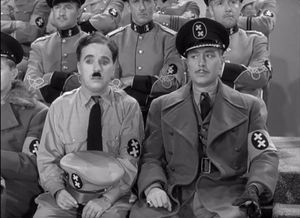Many people my age are uninterested in politics. They don’t vote, they don’t take part in social and political movements, they just don’t care. I wouldn’t call it selfishness; sometimes it’s jadedness. And the reasons are probably not simple. But I think one reason is the way we relate to authority.
Like any social structure in which a small group holds all authority, traditional state schools create a dynamic by which students learn to see authority figures as distant, unreasonable, and often malignant. As a result, students disengage. The individuals involved are not to blame, it’s the system that is broken. But that broken system teaches the students the wrong lessons, and twists the way they see authority. I think this might have far-reaching consequences for society and for democracy.
The vicious cycle of secrecy and injustice
In traditional state schools — even the really nice ones I attended before Sudbury Jerusalem — adults and students are groups that play two very different roles. I’d like to sketch how this seems to work.
The adults are usually there to practice the profession they chose, and they can arbitrarily tell any student to do almost anything any time — answer a question (whether or not you find it interesting), clean up a mess (whether or not you made it), etc. Students are usually there because they are forced to or expected to, and most students can’t tell anyone at all what to do, with the notable exception of bullies.
The students are wary of the adults, who will often punish them, which, if nothing else, is almost always humiliating; what’s worse, punishment is unpredictable and often unfair — usually no system is in place for the due process of justice, and the norm is that teachers make executive decisions quickly and decisively. The good news for the students is that they will never get in trouble for something the adults don’t know about. As a result, students learn to keep their distance, and act with secrecy. It’s just the best strategy against sanctions and humiliation.
Teachers are usually wonderful people with nothing but the best intentions. But faced with a mass of children who are constantly sneaking around, they don’t always show their wonderful, good-intentioned side. They are always on the lookout for bad behavior, which is usually a more transparent concept to them than to their students (in the very nice elementary school I attended, I don’t recall ever having a clear set of rules laid out before me).
So the teachers have to be on the lookout, because the students are accustomed to secrecy. New students quickly learn to be secretive, because the teachers are clearly on the lookout. It’s a vicious cycle. Nobody’s really to blame. Injustice abounds.
Relating to authority
In the traditional school system, children rarely have the opportunity to relate to an adult as a real human being with emotions, preferences, aspirations, mistakes and subsequent humility. They learn to see authority figures as distant, isolated, and somewhat malignant forces in their lives. They learn to distrust and disengage.
Good authority, bad authority
There’s nothing wrong with authority when it’s mandated and part of a social order in which responsibility and authority are bestowed by the community. It is arbitrarily imposed authority that is problematic; the situation I described above plays out similarly in totalitarian states, albeit with more violence.
But modern democratic states are something of a mix, and can be seen either way: authority stems from the will of the people; but with a community so large, that authority is often indeed arbitrary, and even more often feels arbitary. Behavior one generation has accepted as normal may still be criminal or stigmatized due to previous generations’ norms — to take a current example, homosexual activity was still criminal in some US states as recently as 2003, and to this day the US military still will not allow gays to serve openly.
Young people today…
It seems to me that our childhood encounters with authority shape how we understand it and relate to it as adults. Children who mainly experience it as arbitrary, forceful and unpleasant may well continue to perceive all authority this way. Even in entirely democratic schools, you see this attitude with teenagers who arrive after a few years in a traditional school. The strategy of distrust and disengagement, a habit of both thought and behavior, seems very hard to drop.
We in the developed world live in modern democracies. Half of democracy is accepting that it takes time and discussion to make things happen. But change does happen, at least when a mass of individuals dares to try. I think people who have had the opportunity to experience fair and mandated authority can more easily relate to the structures of authority in adult life. And people who can do that are more likely to try.
The point
This brings me back to the point from Sunday’s post: democratic education is a sensible choice for democratic states. We don’t need schools that just tell students about democracy while allowing them to experience the opposite. We need schools where students have a real say and learn that as democratic citizens, they are empowered to make a difference. We need citizens who know their voice matters, even when those in power seem deaf.


Excellent analisys of the current sitution but still,I ask myself, if you young people do not get involved and try to change the situation who will?
That’s what makes this such a big problem.
Still, clearly some of my generation still manage to show some involvement. We can only hope that it will be enough.